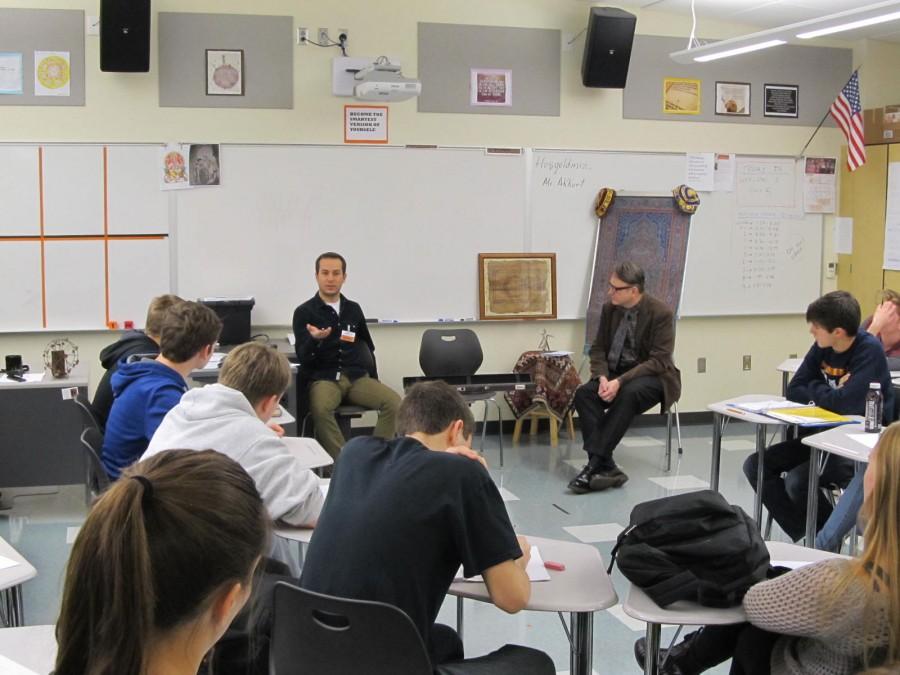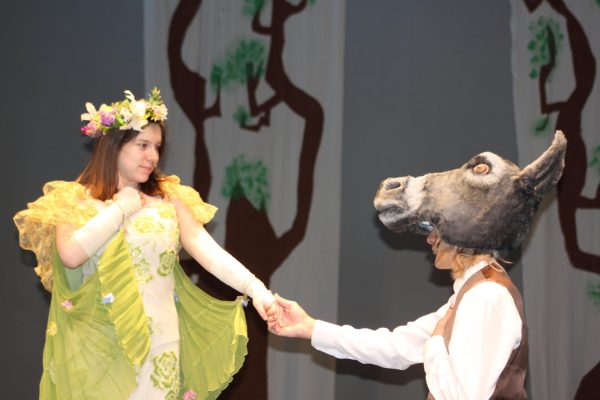Turkish scholar visits English classes
On Thursday, Dec. 4, Mr. Mehmet Akkurt, a Turkish scholar, spoke to Mr Allemang’s English 12 Honors classes about a Turkish poet they were studying, Rumi. Mr. Youngs’s AP class also joined the group.
Mr. Akkurt is from Midyat, a city in the province of Mardin located in southeastern Turkey. He is a graduate student at Duquesne University in the Department of Counseling and Psychology.
The focus of Mr. Akkurt’s talk was Rumi’s “The Reed Flute’s Song.” Mr Akkurt explained the symbolism of the reed flute and brought a reed flute for the students to see. In the poem, Rumi reflects on the human spirit through the metaphor of the ancient reed flute.
“The Reed Flute’s Song” is part of the Masnavi, a series of six books of poetry that together amount to around 25,000 verses or 50,000 lines.
After explaining the symbolism of the reed flute, Mr. Akkurt played a recording of the reed flute being played.
Mr. Youngs, who had visited Turkey in 2006 on an educational dialogue trip sponsored by the Turkish Cultural Center of Pittsburgh, talked about his experience in Turkey and about Rumi and his influence on Turkish culture.
Rumi, Jalāl ad-Din Muḥammad Rūmi, was a 13th century Sufi mystic and poet, from Persia. Rumi was born in modern day Afghanistan and lived for awhile in Turkey. Rumi’s poetry expresses his longing for union with the Divine. Rumi was buried in the Mevlâna Mausoleum, with its mosque, dance hall, dervish living quarters, school and tombs of some leaders of the Mevlevi Order, and it continues to this day to draw pilgrims from all parts of the Muslim and non-Muslim world.
To read an English translation of “The Reed Flute’s Song”, click here.
To hear a recording of a reed flute being played, click here.

BPHS senior Greydon Tomkowitz is the current Editor-In-Chief of Hawk Eye, a position he has served in for three years.
Greydon joined the newspaper...











